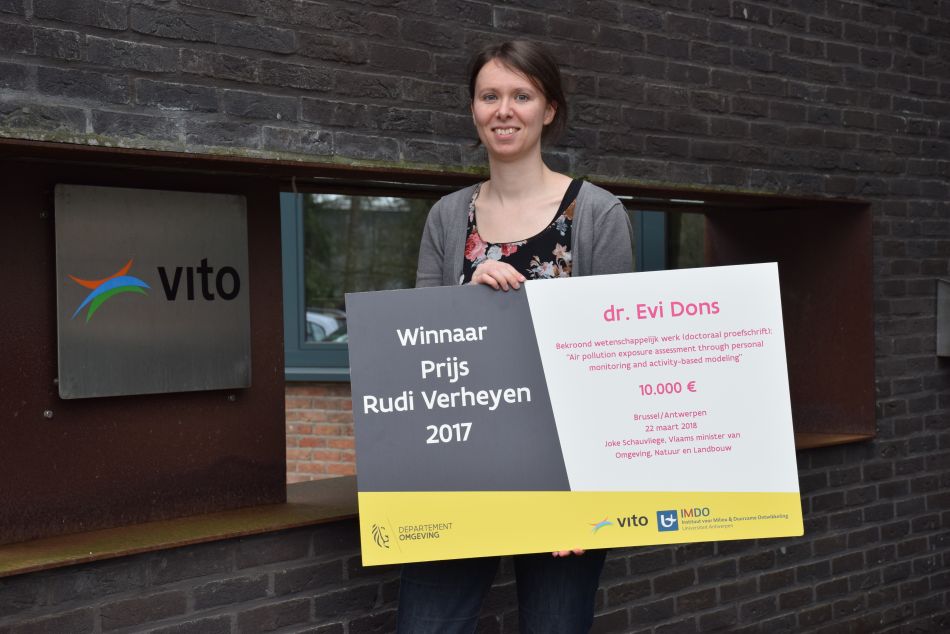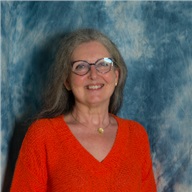“The more time you spend on the road, the more air pollution you are exposed to”
Extreme concentrations of air pollution can lead to health problems and even death. During her PhD at the Transportation Research Institute (UHasselt), Evi Dons analysed individual exposure to air pollution – work which has now won her the Rudi Verheyen Award. The award, launched by Minister Joke Schauvliege and UAntwerp, will be presented on 22 March for the thirteenth time. As of this year, the organisers can count on the financial support of VITO. Dons aims to use the prize money to develop an app that can measure air quality and physical activity to give individual health recommendations.
Professor Rudi Verheyen, who died in early 2014, was one of the architects of Flanders’ policy on nature and environment. Through his scientific research, he produced key data and insights that would shape and inform those policies. Verheyen was chairman of the Flanders Environmental and Nature Council for many years, in addition to being the rector-president of the University of Antwerp. Since 2003, the Rudi Verheyen Award has been presented to scientists who have made important contributions to nature and environmental policy in Flanders. As of this year, the prize is co-funded by VITO, the Flemish research institute for sustainable development and ‘cleantech’.
Black carbon
In selecting Evi Dons for the thirteenth edition, the jury rewarded a contemporary, policy-relevant study with important social and economic applications. Dons, who received a grant from Research Foundation Flanders and is currently working as a postdoctoral researcher, studied individuals’ exposure to air pollutants, developing new portable measuring devices and policy-supporting models for this purpose. The new measurement methods are being applied to study black carbon (BC), a pollutant found in particulate matter in Flanders that is mainly caused by traffic.
“I discovered that the amount of time a person spends in traffic has an impact on the dose of air pollution they get in one day. As a result, the difference in exposure between two people living at the same address, such as the 27 couples who took part in this study, can be as high as 30%," says Dons. "In a vehicle, concentrations are highest on motorways and in urban environments, during rush hour and on weekdays in heavy traffic, and at very low and high speeds. Cyclists and pedestrians are advised to keep as far away from sources of pollution as possible – a bicycle path that is even just a few metres away from car traffic can make a difference.”
The way forward
“The research is interdisciplinary and has international appeal. The use of new mobile technologies to map personal exposure to air pollution was well received by scientists both at home and abroad,” said the jury. “This ground-breaking method is being applied in various Flemish government studies and is described in epidemiological studies as ‘the way forward’. The research has contributed to the expedited installation of black carbon detectors by Flanders’ Environment Agency, played a role in the revision of air quality standards and is also being used for educational purposes.”
The jury also praised the way Dons intends to use the prize money. The researcher aims to use the 10 000 euros to develop a new ‘Health-e-Move’ app which can make individual air quality measurements. The award was presented by Hugo Geerts, Deputy Head of Cabinet for Joke Schauvliege, Flemish Minister of Environment, Nature and Agriculture.
Contact
Peter De Meyer, University of Antwerp spokesman
peter.demeyer@uantwerpen.be
+32 476 20 07 54



